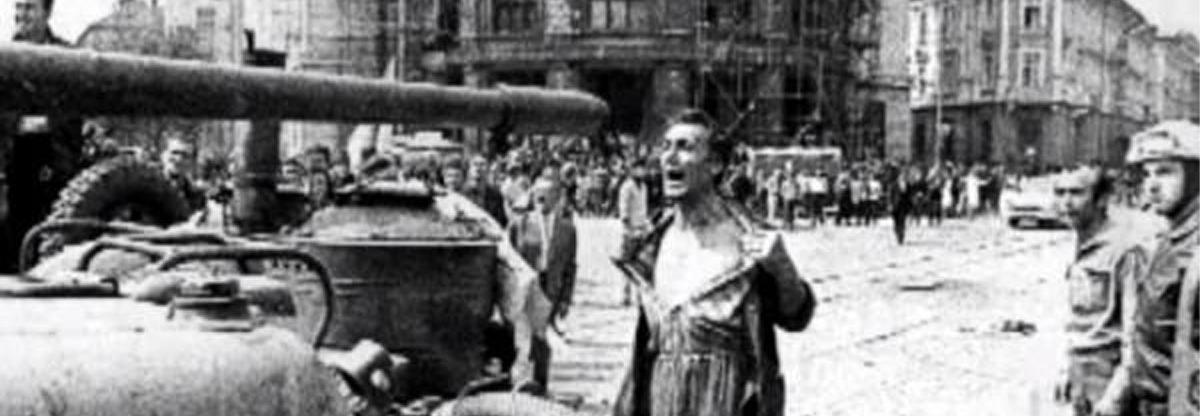
The Prague Spring was a period of political liberalization in Czechoslovakia during the era of its domination by the Soviet Union after World War II. It began on 5 January 1968, when reformist Alexander Dubček was elected First Secretary of the Communist Party of Czechoslovakia (KSČ), and continued until 21 August 1968 when the Soviet Union and other members of the Warsaw Pact invaded the country to halt the reforms. After the invasion, Czechoslovakia entered a period known as “normalization”: subsequent leaders attempted to restore the political and economic values that had prevailed before Dubček gained control of the KSČ. Gustáv Husák, who replaced Dubček and also became President, reversed almost all of Dubček’s reforms.
The events of 1968 and the subsequent period of normalization brought significant changes to the political and social life of the Hungarian minority of Czechoslovakia, in particular to the Hungarian intellectuals. MEP Pál Csáky said that the latter group is of interest for three reasons:
“1. By that time, it was obvious that the Hungarians living in Czechoslovakia turned away from Budapest that had been a political center, and Prague became the new center. It was also clear that if the Czechoslovak ruling power at least gave the (ethnic) Hungarians hope that it would take them seriously and would be ready to even slightly raise the level of their rights, the Czechoslovak Hungarians’ loyalty would very rapidly increase. The Czechoslovak Hungarian elite of that time, more particularly the Czechoslovak (ethnic) Hungarian community as a whole, very strongly supported the Prague Spring as the reform movement of social reorganization.
2. The events of 1968, as well as that of 1989, showed that the Czechoslovak (ethnic) Hungarian community of that time was essentially a political community, which could organize itself and articulate its own plans. In 1968, Csemadok (Cultural Organization of Hungarian Workers in Czechoslovakia) became the representative of the Hungarian community living in Czechoslovakia. It is uplifting to read five decades later the minutes prepared, to appreciate the heated debates and to consider the solutions proposed back then.
3. 1968 also revealed dangerous social divisions: the servility of a Hungarian social group, within the Hungarian community in Czechoslovakia, that was willing to serve the ruling power and the violence of anti-Hungarian attitudes of the Slovak nationalists. It resulted in the third ‘decapitation’ of the twentiethcentury (ethnic) Hungarian intelligentsia in Czechoslovakia and the intimidation of the Czechoslovak (ethnic) Hungarian community in the so-called normalization period.
(www.mkp.sk, 21 Aug 2018)